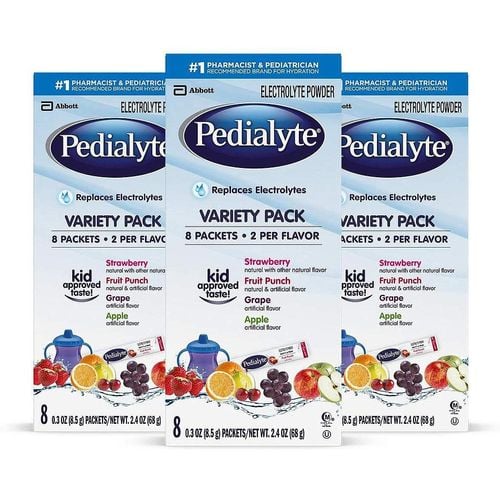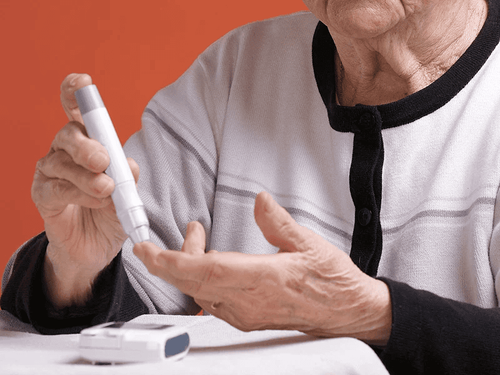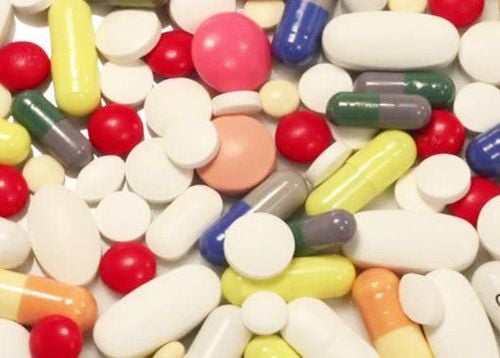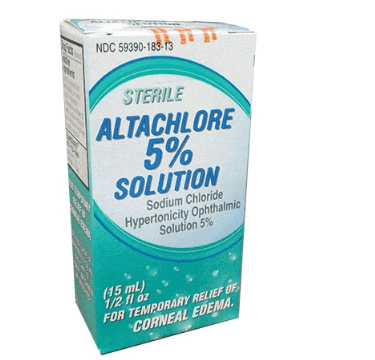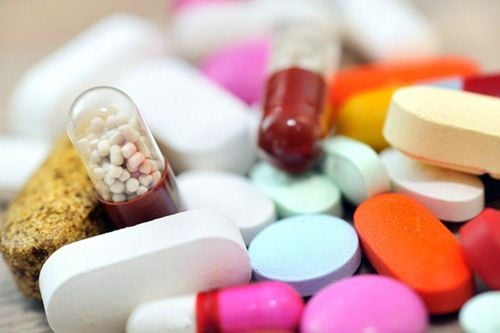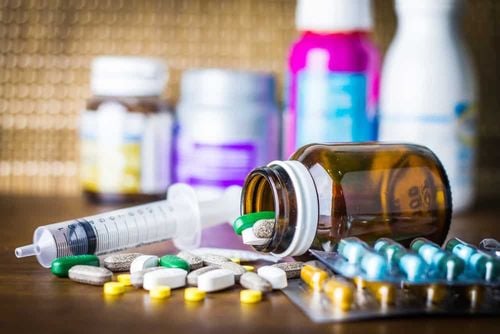This is an automatically translated article.
Posted by Master, Doctor Mai Vien Phuong - Department of Examination & Internal Medicine - Vinmec Central Park International General HospitalCrohn's disease is an inflammatory bowel disease with symptoms of abdominal pain, severe diarrhea, fatigue, weight loss, and malnutrition. The inflammation caused by Crohn's disease often spreads deep into the layers of intestinal tissue, which is both painful and debilitating, and can sometimes lead to life-threatening complications.
Although there is no cure for Crohn's disease, care and treatment can significantly reduce the signs and symptoms of the disease and even bring about long-term remission.
1. Symptoms of Crohn's Disease
Crohn's disease is a chronic inflammatory disease of the granulosa tissue of the gastrointestinal tract, but mainly in the terminal small intestine, but can occur in all other sites of the gastrointestinal tract. Symptoms of Crohn's disease can range from mild to severe and develop slowly, but sometimes come on suddenly, without warning. People with the disease may have periods without signs or symptoms of the disease that make them think their Crohn's disease is in remission.When the disease is active, typical symptoms are as follows:
Diarrhea Fever Fatigue Abdominal pain and cramps Blood in stools due to Crohn's disease Mouth ulcers Decreased appetite and weight loss Pain near or around anus People with severe Crohn's disease will have some other symptoms such as:
Inflammation of the skin, eyes and joints Hepatitis or inflammation of the bile ducts Children who are slow to grow or develop sexual characteristics during puberty See a doctor if the person has persistent changes in bowel habits or has any of the symptoms of Crohn's disease such as:
Abdominal pain Blood in the stool Persistent diarrhea that does not respond to over-the-counter medications Fever No unexplained weight loss lasting one or two days Unexplained weight loss Complications of Crohn's disease can be as follows:
Intestinal obstruction . Crohn's disease affects the thickness of the intestinal wall. Over time, parts of the intestine can scar and narrow, blocking the flow of food that is being digested and absorbed in the digestive tract. As a result, the patient may need surgery to remove the part of the intestine that is blocking the digestive tract. Ulcers. Chronic inflammation can lead to ulcers anywhere in the digestive tract, including the mouth and anus. Leakage hole. Fistulas near or around the anal area are the most common. Anal fissure. Malnutrition . Diarrhea, abdominal pain, and cramps can cause poor appetite or the intestines to not absorb enough nutrients, leading to the common symptom of iron deficiency anemia or vitamin B-12 deficiency. Colon cancer. Having Crohn's disease affecting the colon increases the risk of colon cancer. Experts recommend colon cancer screening for people without Crohn's disease who should have a colonoscopy every 10 years starting at age 50. Anemia, skin disorders, osteoporosis, arthritis, and pouch disease. bile or liver. Certain medications that treat Crohn's disease by suppressing immune system functions have been linked to an increased risk of developing small cancers such as lymphoma and skin cancer.
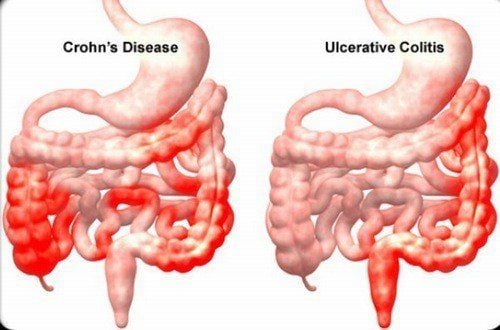
2. An overview of antidiarrheal agents in Crohn's disease
Crohn's disease is an inflammatory bowel disease that causes inflammation of the digestive tract. The exact cause of Crohn's disease is not known. However, some experts believe that the immune system may contribute to the development of this condition.The immune system is responsible for protecting the body from pathogens and infections. As your body tries to fight off harmful invaders, your digestive tract becomes inflamed.
Usually, this inflammation goes away when the infection clears. In people with Crohn's disease, the digestive tract becomes inflamed even when there is no infection. Inflammation often leads to symptoms such as fatigue, abdominal pain, and diarrhea.
Diarrhea can be one of the more disturbing and uncomfortable symptoms of Crohn's disease. Often occurring at the most inconvenient times, diarrhea can disrupt your daily activities and can eventually cause serious complications.
In patients with milder Crohn's disease, current guidelines recommend close monitoring while treating symptoms. This includes making dietary changes and using anti-diarrheal medications to help control diarrhea associated with Crohn's disease.
Here are the five most popular choices.
Loperamide
Loperamide is one of the most well-known anti-diarrheal drugs. It slows down digestion in your intestines, which allows food to stay in your system for a longer time.
This allows your body to better absorb the food you eat, helping to reduce the number of bowel movements per day.
Loperamide is an oral medication that is usually only used after an episode of diarrhea. When diarrhea occurs frequently, your doctor may prescribe this medication on a regular basis. In this case, the medicine will need to be taken at least once daily.
Popular over-the-counter (OTC) versions of this medication include Imodium and Diamode. Possible side effects include dry mouth, drowsiness, and constipation.
Diphenoxylate
Diphenoxylate is similar to loperamide. It slows down your bowel movements to reduce the frequency of diarrhea. Diphenoxylate is an oral medication that can be taken up to four times per day.
In the United States, diphenoxylate is available by prescription only and is taken in combination with a medicine called atropine.
Because it can be addictive, your doctor will likely prescribe diphenoxylate as a short-term treatment. Symptoms usually improve within two days of starting the medication. Brand names of drugs that use diphenoxylate include Lomocot and Lomotil.
Side effects of diphenoxylate include dry mouth, bloating, and constipation.
Cholestyramine
Cholestyramine helps prevent diarrhea in people with Crohn's disease by normalizing the amount of bile acids in the body. It is usually prescribed if you have had part of your small intestine removed in a surgical technique called an ileostomy.
The medicine comes in powder form, which you can mix with drinks or certain foods and drink. In most cases, it needs to be taken two to four times per day. The most commonly prescribed cholestyramine medications include Prevalite and Questran.
People taking these medicines may experience constipation.
Codeine sulfate
Codeine is often prescribed for pain relief. When you take it in the form of codeine sulfate tablets, it can help prevent diarrhea. Codeine sulfate can be too addictive for daily use, so it is often prescribed for short-term use in more severe cases of diarrhea.
Some people with Crohn's disease get pain relief from Tylenol with codeine. This prescription medication is available in both pill and liquid form. Possible side effects of both codeine sulfate and Tylenol with codeine include drowsiness, dry mouth, and constipation.
Pepto-Bismol
An over-the-counter remedy that has been popular for decades, Pepto-Bismol is an antacid that is also an anti-inflammatory. It contains an active ingredient called bismuth subsalicylate, which coats irritated tissues in the stomach and intestines. This helps reduce inflammation and irritation.
Pepto-Bismol comes in liquid, chewable and oral tablet form. While Pepto-Bismol is very effective for temporary cases of diarrhea, you may need something stronger if you have chronic diarrhea.
Pepto-Bismol side effects include temporary darkening of the tongue and constipation. Children under 12 years of age should not take Pepto-Bismol due to possible association with Reye's syndrome.
Natural remedies that can help reduce diarrhea associated with Crohn's disease
There are also natural remedies that can help reduce diarrhea associated with Crohn's disease. These treatments - available to buy at grocery stores, health food stores, or online - include:
Charcoal Blackberry tea Cayenne ginger tea in capsule form It can help avoid:
Dairy products Alcohol Carbonated soft drinks Caffeinated drinks Fried foods Greasy foods You can limit your consumption of certain fruits and vegetables that can cause a lot of gas. These foods include:
Broccoli Beans Peas Corn Kale Plums Chickpeas Try liquid-like clear foods instead, such as soups and Jell-O.
Other bland foods you can eat include:
Toast Rice Chicken Eggs Skinless During episodes of diarrhea it is important to drink more fluids. Diarrhea can cause dehydration, which can become a serious medical condition if not treated properly. Drinking plenty of water will help ensure that you stay hydrated.
Doctors recommend adding a teaspoon of salt and sugar to a quart of water. This will help replenish the glucose and electrolytes lost due to diarrhea.
As with any treatment, you should only choose medications or home remedies under your doctor's supervision.
Your doctor will likely want to monitor your progress as you begin treatment for Crohn's disease symptoms to make sure treatment does not adversely affect your condition. Deciding which drug to use, the dosage of the route... will ultimately be decided by the doctor.

Department of Endoscopy - Gastroenterology is one of the key specialties at Vinmec International General Hospital. For timely examination, advice and treatment of digestive diseases, you can contact Vinmec Health System nationwide or book an appointment on the website for service.
Please dial HOTLINE for more information or register for an appointment HERE. Download MyVinmec app to make appointments faster and to manage your bookings easily.
ReferenceAnti-diarrheal loperamide HCL. (2018). dailymed.nlm.nih.gov/dailymed/drugInfo.cfm?setid=e16bdadf-5780-4602-bf71-7ff5a3a55959 Cholestyramine. (2018). https://dailymed.nlm.nih.gov/dailymed/drugInfo.cfm?setid=ac385fd9-fb8c-461f-959c-322c38f4515e Codeine information. (2015). fda.gov/Drugs/DrugSafety/PostmarketDrugSafetyInformationforPatientsandProviders/ucm118108.htm Diphenoxylate hydrochloride and atropine sulfate. (2016). dailymed.nlm.nih.gov/dailymed/drugInfo.cfm?setid=88ed4ccf-9e35-4142-a5eb-d2b5edd36956 Mayo Clinic Staff. (2018). Crohn's disease: Treatments and drugs. mayoclinic.org/diseases-conditions/crohns-disease/basics/treatment/con-20032061 Mayo Clinic Staff. (2016). Diarrhea: Lifestyle and home remedies. mayoclinic.org/diseases-conditions/diarrhea/basics/lifestyle-home-remedies/con-20014025 Pepto-Bismol: FAQs. (n.d.). pepto-bismol.com/en-us/faqs





